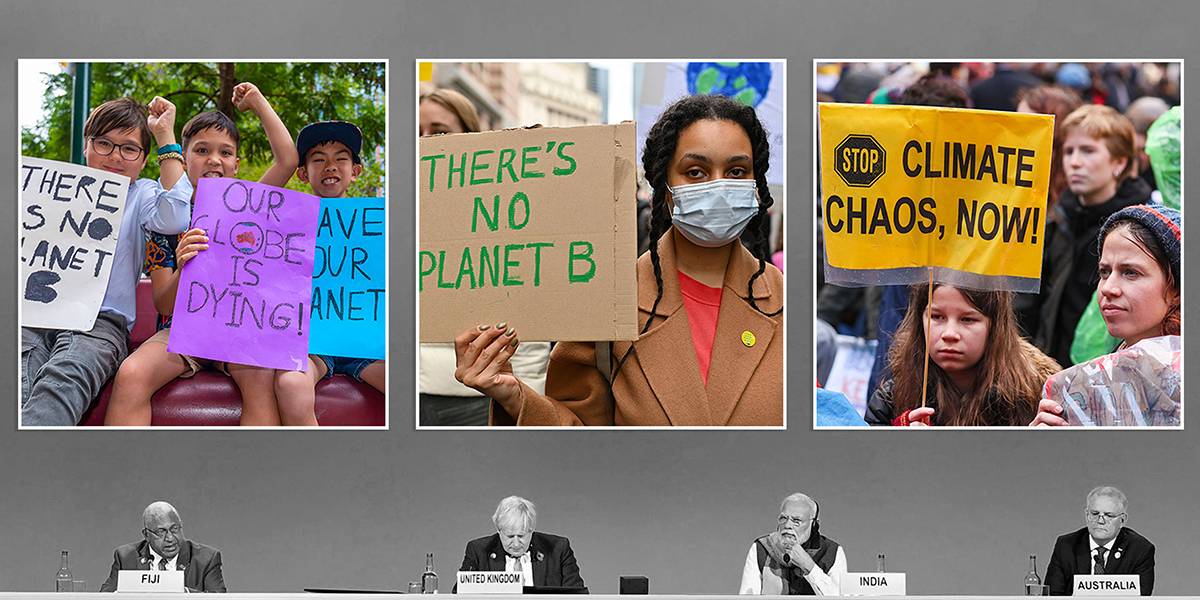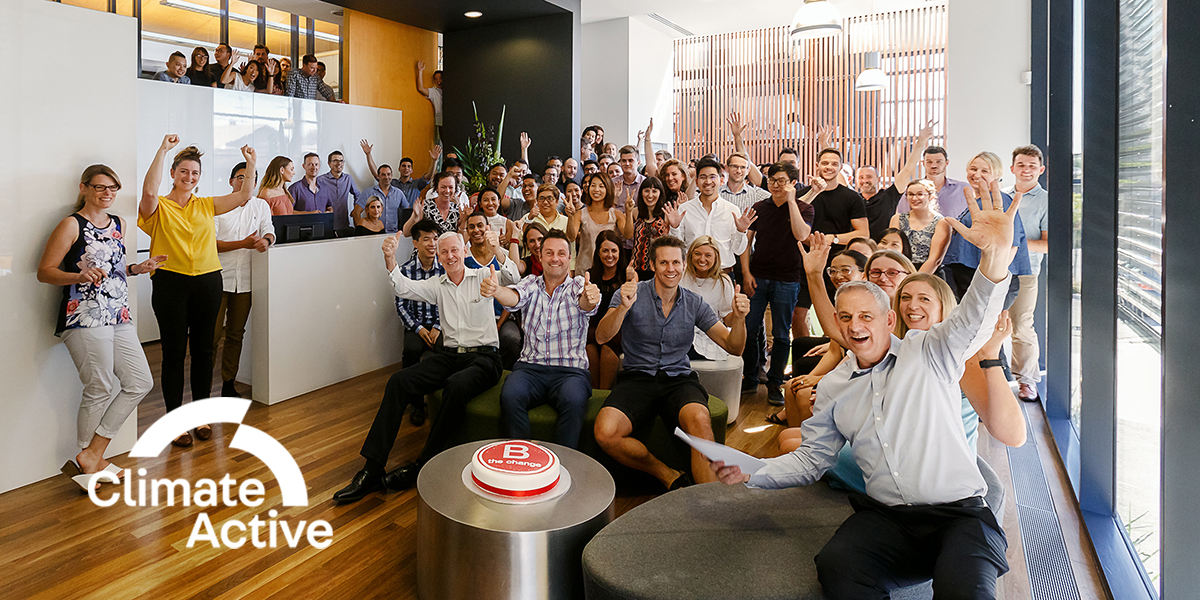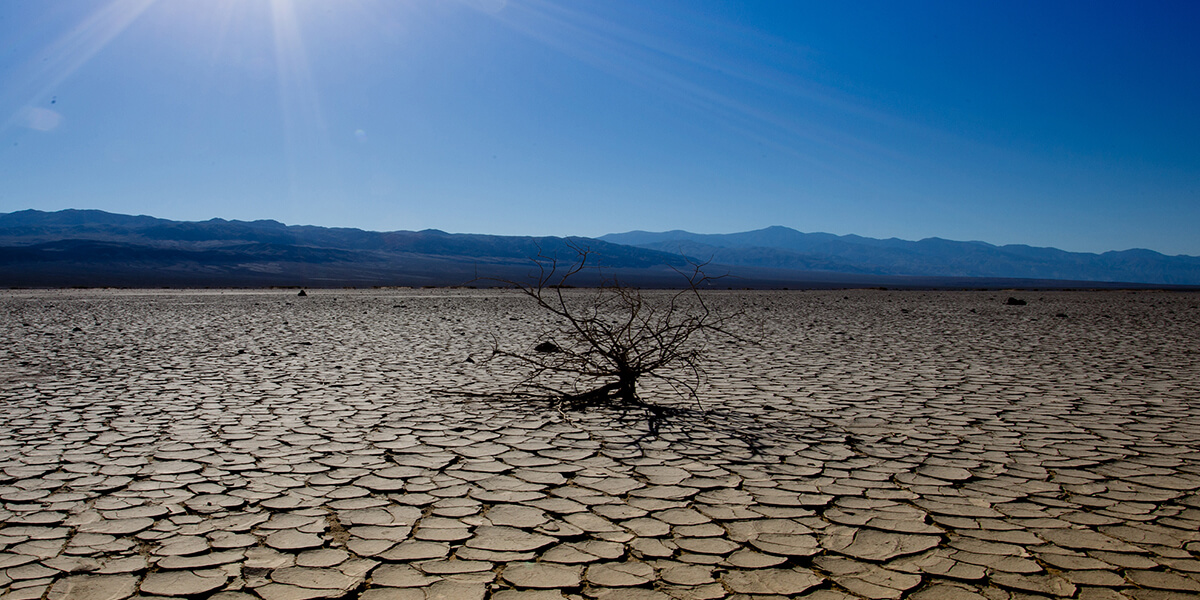Post COP26 Update: November 2021
- Summary
- COP26 outcomes
- What needs to improve
- Post COP26 – what we can do
- A better future is possible
- Our writers
- Take action right now. Here’s a few ways we can help.
Missing out on our sustainability news? Subscribe to our newsletter right here.
Our response to COP26 United Nations Climate Change Conference, Glasgow
By James Endean, Sarah Colquhoun, and Mylène Turban
Summary
While there were many positive announcements and commitments made at COP26, the world is still not on track to limit the dangerous impacts of climate change. For many marginalised groups the outcomes are not a call for celebration but rather a reaffirmation that the interests of the old, rich and powerful are more important than their own. For a truly inclusive outcome that we can all celebrate, world leaders need to stop prioritising the needs of the present and the wealthy over those of the future and the disadvantaged. For the rest of us, we must continue to promote awareness, take action, and show the leadership that has, so far, been lacking on the global stage.

COP26 outcomes
Many grand statements came out of COP26 covering a range of important areas. From the transition away from coal and ending funding for fossil fuels to targeting methane, accelerating the uptake of zero emissions cars, and protecting forests. COP26 also signalled the launch of the beyond oil and gas alliance to more comprehensively overcome our addiction to fossil fuels, although membership at this stage is limited. The world’s two largest emitters, the US and China, also agreed to set aside their differences and work together to address the climate crisis over the ‘critical decade’ of the 2020s.
These achievements are important and signal a willingness to actually tackle the root causes of climate change. However, while these commitments may seem positive, current policies are still only expected to limit warming to between 2.6 C to 2.7 C by 2100. When pledges and longer-term net-zero commitments are considered, the most optimistic forecast drops to 1.8 C. Since there is no guarantee all commitments will be met, the Climate Action Tracker rightly points out, there is a ‘credibility gap’ between promises and actual near-term policy. Considering the uncertainty of modelling and the likelihood that some targets will not be met, the most optimistic forecasts must predict 2100 temperatures to rise by less than 1.5 C and these must be backed by tangible national policies.
Fortunately the Glasgow Climate Pact recognises this gap and requests countries to ‘revisit and strengthen’ their climate pledges by the end of 2022. Starting in 2023 there will also be annual high-level meetings to consider ambition to 2030. Ideally these meetings will help ensure that countries that have not yet increased ambitions and are falling short of the 1.5 C goal will lift their game. Unfortunately Australia is in this camp..
Fundamentally though, it is clear that world leaders are continuing to delay action and to place hope in future technology and innovation. The burden of responsibility is therefore shifted to corporations, individuals, and, most frustratingly, our children. This is while the destructive impacts of climate change are already felt. For young leaders, future generations, first nations peoples, developing countries, and small island states, the outcomes of COP26 show a lack of ambition, accountability, and urgency. Furthermore those with the most to lose, who will be worst affected by climate change, are the least represented and the most frequently ignored.
What needs to improve
While there were some positive steps forward over the course of COP26, a lot has been left to future conferences and for the next generation of leaders. So, what needs to improve in the coming months and years?
The IPCC’s Sixth Assessment Report made it clear: there is no time to waste. Global warming is expected to hit 1.5 C in the early 2030s if we continue on our current trajectory.The longer we delay the harder it will be to recover from overshoot. The consensus is that we need CO2 emissions to fall by about 45% from 2010 levels by 2030 and to reach net zero by around 2050. No country is currently on this path and near-term targets need to be much more ambitious to reach these goals.
Fossil fuels are at the root of the climate crisis. We need to end the debate about their roles into the future. The more coal, oil, and gas that stays in the ground, the better the chance of avoiding catastrophic climate change. We must transition away from these fuels as quickly as possible. To do so, the most important starting point is ending fossil fuel subsidies and use this money to instead finance renewable energy solutions and natural ecosystems regeneration. There is no reasonable case economically to prop up these ancient energy stores. The continued support for fossil fuels in Australia must end to pave the way for renewable and clean alternatives.
A shortcoming of the COP process is a lack of accountability. Even when considerable progress is made, such as the outcomes of the 2015 Paris Agreement, many countries continue to under-deliver on their promises with very little recourse. Australia, for example, updated its emissions plans last year ahead of the deadline established by the Paris Agreement. It technically followed the rules, but it did not actually increase its ambition, which is the entire point of the updates.
Furthermore, wealthy nations need increase finance for adaptation and loss and damage to low and middle-income countries. The impacts of climate change are already felt, primarily by those who have done the least to cause it. High-income nations have failed to meet an earlier pledge to provide US$100 billion in climate finance annually from 2020. This sends a message that it is every country for themselves.
The climate crisis is a global crisis and there is an urgent need for a paradigm shift in climate finance within the multilateral climate negotiations. Given the human and economic cost of ecological collapse, negotiators must focus on achieving 1.5°C to avoid any further loss and damage, and to secure climate reparations for those at the front lines of climate injustice. Moreover, those reparations should reflect responsibility for cumulative greenhouse gas emissions rather than willingness to pay. The science has been clear for thirty years; rich countries that have not chosen to decarbonise should be held accountable for the catastrophe that they are continuing to fuel.
Additionally, there needs to be a greater representation of diverse perspectives and less power given to the largest countries. The over-representation of white men in the climate change decision-making process is stifling. Women serve only 24 countries as Head of State and made up 49% of registered government delegates at COP26 – a small progress compared to previous COPs. However, men still accounted for 60% of active speakers and spoke for 74% of the time. Global leaders remain blind to the role of the patriarchy, racism, and neo-colonialism in the climate crisis, therefore preventing a fair and just future for all. All countries need to ensure a gender balance and to represent marginalised communities in their delegations such as indigenous peoples, rather than relegating them to observer status.
COP26 shows that Governments are doing the bare minimum and the nature of the global negotiations ensures slow and conservative progress. Countries, businesses, and individuals with high ambitions have been left to work outside of this format to push action forward.
Post COP26 – what we can do
Individuals and businesses in all sectors have an important role to play to limit the impacts of the climate crisis. We cannot delay action, but many do not know where to start. Here is a four-step framework to help you and your workplace: learn more about climate change; take action and help others to act; identify actions and approach workplace decision makers and stakeholders; and send the message about effective, fair climate action to all levels of Government.
-
- Learn:
Climate education is key in order to fully understand the problem and take meaningful action. The following resources will help you get started:- Read AR6,I (IPCC report published in 2021);
- Play the Climate Fresk Workshop: a three-hour gamified system and collaborative workshop which provides an overview of climate change and what is at stake;
- Use the Climate Council Resources;
- Take a look at the Drawdown Climate Solutions Course.
- Take action and encourage others to act:
Understanding the emissions for which you are responsible and the sources of those emissions is the next step. For organisations, the most accurate way is to measure by undertaking a greenhouse gas emissions inventory, commonly known as a carbon footprint. The inventory needs to include scopes 1, 2 and 3 emissions to be complete and to follow the GHG Protocol.A rapid and equitable transition away from fossil fuels and real climate justice needs to be the basis for climate action. To avoid the worst climate impacts, businesses need to understand the science-based targets framework (SBTi) and enact strong net-zero policies with firm deadlines. Covering long-term targets with medium-term objectives and measurable actions is an important part of planning.Educating others is part of acting on climate change – we need everyone onboard! Each fraction of greenhouse gas emissions avoided is a win. - Request action from the decision makers and stakeholders:
Send an evidence-based and compelling message to key decision makers and stakeholders. Ask for meaningful change including:- Moving away from fossil fuels;
- Reducing consumption of virgin materials;
- Switching to 100% renewable electricity and, if possible, investing in clean energy generation;
- Improving and investing in energy efficiencies;
- Reducing non-energy related emissions;
- Reviewing your supply network and encouraging supply chain partners to review and reduce their own emissions;
- Ensuring that your financial institutions are making the right choices, e.g., not investing in fossil fuel projects;
- Offsetting any greenhouse gas emissions that you cannot eliminate;
- Protecting biodiversity and natural carbon sinks through your offsetting choices;
- Initiating action. Showing climate leadership. Setting an example for others.
- Use your voice and hold Governments to account:
Once you understand the climate crisis and how you can be part of the solution, use your voice. Demand meaningful action from all levels of Government and go further. We must expand the dialogue beyond emissions to incorporate intergenerational equity, human rights, gender equality, and cultural integrity. If we do this as a society, we mitigate climate change, and eliminate climate justice challenges.
A better future is possible
Ask yourself: ‘What do we need the future to look like? Where does my workplace need to be in 10, 20, 50 years? What do we need to do right now to get there? Think about the future you want to see, not the destructive course to which we are resigning ourselves.
We have many emissions-reduction solutions ready to use and to deploy. Let’s think ambitiously, educate others, find better ways to communicate the impacts of climate change – and demand change right now.
‘The greatest threat to our planet is to believe that someone else will save it’ – Robert Swan OBE, Environmental Leader and Explorer (1999)
- Learn:
-
Our writers
We think it is appropriate that a few of our team members with long futures ahead of them are the ones to respond to the COP26 United Nations Climate Change Conference. James Endean, Sarah Colquhoun, and Mylène Turban are three of our Carbon & Energy Consultants. They are highly skilled, dedicated, and important contributors to climate action themselves.
 James Endean, Carbon & Energy Consultant
James Endean, Carbon & Energy ConsultantJames is a registered Climate Active consultant. He has expertise in corporate sustainability reporting including NGER and ERF. James holds a Master’s of Sustainability and a Bachelor’s Degree in Environmental Policy and Management.
 Sarah Colquhoun, Carbon & Energy Consultant
Sarah Colquhoun, Carbon & Energy ConsultantSarah is a registered Climate Active consultant. As well as her many accomplishments in carbon and energy management, she holds a Master’s Degree in Marine Environmental Management.
 Mylène Turban, Carbon & Energy Consultant
Mylène Turban, Carbon & Energy ConsultantMylène is a registered Chemical Engineer. She has a particular interest in designing circular economy business models and facilitating climate change workshops.
Take action. Here are a few ways we can help:

Certified Carbon Neutrality
Become a Climate Active net-zero organisation. Certify a product, a service, an event, a building or precinct.

Carbon Footprint
Take the first step: measure your organisation's impact on the environment. Then go further.

Carbon Offsetting
Choose the carbon offsetting project that aligns with your business and your goals. Let your staff choose!

Life Cycle Assessment (LCA)
Be accountable. Measure the environmental impact of your product or service from cradle to grave.

Science Based Targets (SBTs)
Plan for the 'bigger picture'. How much can your oganisation emit responsibly to align with the climate science.

Embodied Carbon
Reduce the impact of your built environment: manufacturing and transport of materials, construction, demolition, and disposal.
